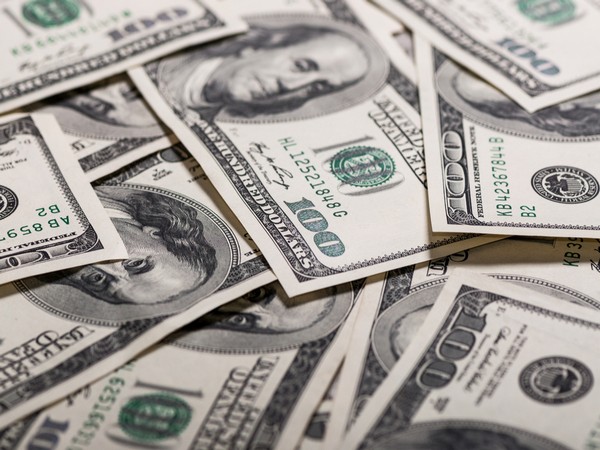FOREX-Dollar slumps as markets trim Fed hike expectations on US banks' fallout
The dollar languished near a multi-week low on Tuesday as fears of a broader systemic crisis following the collapse of a U.S. tech-focused lender left traders speculating that the Federal Reserve could pause its aggressive rate-hiking cycle. Market jitters continued to set the tone for a second straight trading day in the wake of the sudden collapse of Silicon Valley Bank (SVB) and Signature Bank, though some calm was restored after U.S. President Joe Biden on Monday vowed to take action to ensure the safety of the banking system.

The dollar languished near a multi-week low on Tuesday as fears of a broader systemic crisis following the collapse of a U.S. tech-focused lender left traders speculating that the Federal Reserve could pause its aggressive rate-hiking cycle.
Market jitters continued to set the tone for a second straight trading day in the wake of the sudden collapse of Silicon Valley Bank (SVB) and Signature Bank, though some calm was restored after U.S. President Joe Biden on Monday vowed to take action to ensure the safety of the banking system. That gave the U.S. dollar room to nurse deep losses from the previous session, but it remained pinned near multi-week lows against major peers in Asia trade.
The greenback rose to an intraday peak of 134.03 yen and was last 0.48% higher at 133.87, reversing some of Monday's 1.4% slide. Similarly, the dollar pushed the euro and sterling some distance away from their one-month highs hit on Monday.
The euro was last 0.27% lower at $1.0700, having peaked at $1.07485 in the previous session, while the British pound slid 0.28% to $1.2148, away from Monday's high of $1.2200. The collapse of SVB - the largest bank failure since the 2008 financial crisis - has raised questions about whether the Fed's aggressive rate increases have exposed cracks among key players within one of the world's largest and most heavily interconnected banking sectors.
Over the weekend, U.S. authorities launched emergency measures in response to the debacle, in a bid to shore up banking confidence. "The SVB crisis highlights the fact that ... when you lift interest rates by quite a lot, you usually find out there's a few people swimming naked," said Rodrigo Catril, senior currency strategist at National Australia Bank.
"And that argument applies not just to the U.S., but around the globe ... Regardless of the fact that the authorities in the U.S. have provided that security assurance that depositors will be ok, investors don't know if they're going to be ok, and therefore they're running for the door." Traders have since scaled back their bets on how much further the Fed would continue raising interest rates, sparking a sharp rally in Fed funds futures and sending the U.S. dollar tumbling.
Market pricing now shows a roughly 35% chance that the Fed would keep rates on hold at its policy meeting next week, with rate cuts expected as early as June and through the end of the year. The Fed's rate hikes and expectations of how much higher U.S. rates would go have been a huge driver of the dollar's rally.
Against a basket of currencies, the U.S. dollar index rose 0.21% to 103.90, after sliding 0.9% on Monday and hitting a one-month low of 103.47. The Aussie fell 0.23% to $0.6652, reversing some of its 1.3% jump in the previous session, while the kiwi shed 0.13% to stand at $0.6212, having similarly surged 1.4% on Monday.
A key U.S. inflation report is due later on Tuesday, which could add to the Fed's conundrum on whether it should stay on its rate-hike path to tame persistent price pressures, or to hold back on tightening monetary policy further to give the banking system some breathing space. Goldman Sachs' analysts on Sunday said they no longer expect the Fed to deliver a rate hike at its March meeting in light of the recent stress, while Nomura forecast that the central bank will cut interest rates and hit the brakes on quantitative tightening.
"Rather than proceeding with more monetary tightening ... the Fed finds itself in a terrible bind," said Eric Vanraes, a portfolio manager at Eric Sturdza Investments. "Longer term, the tremors in the U.S. banking system in recent days should kill off the Fed's restrictive monetary policy of large rate hikes."
(This story has not been edited by Devdiscourse staff and is auto-generated from a syndicated feed.)










